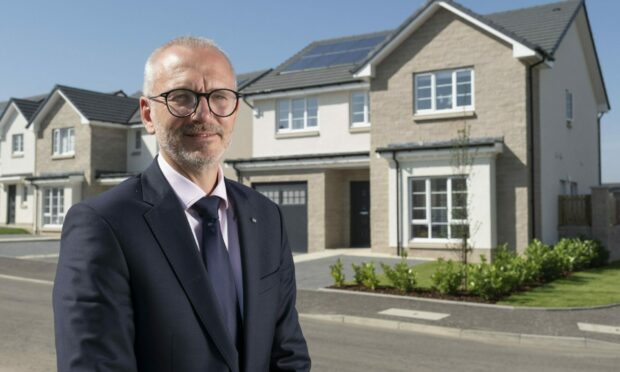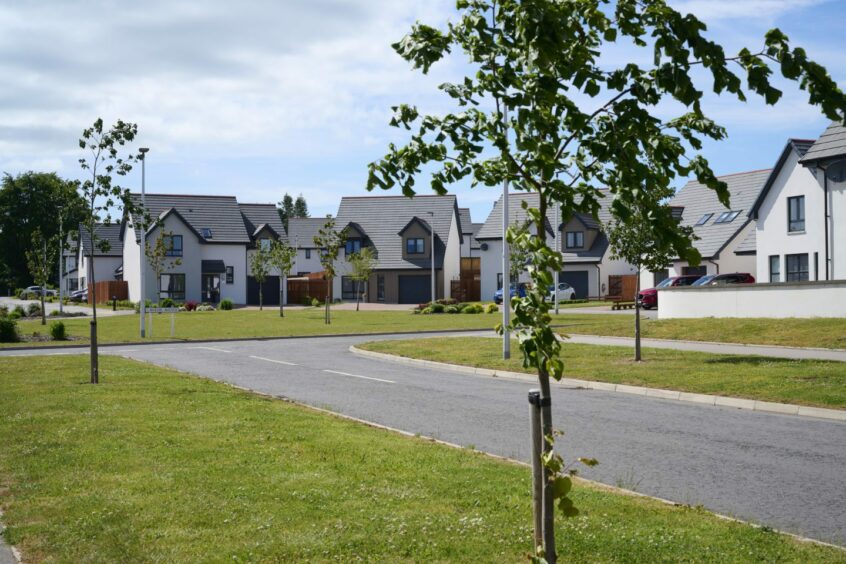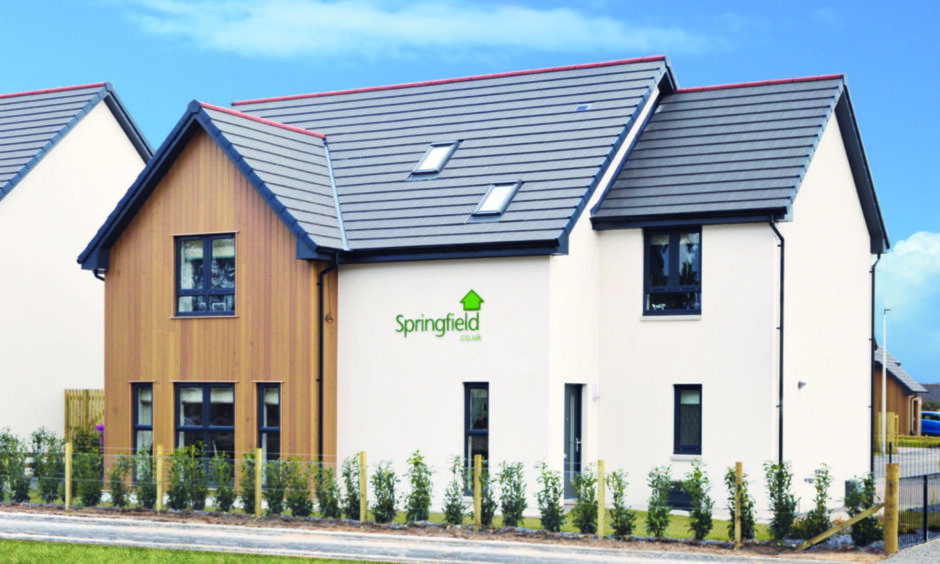The boss of Springfield Properties wants an end to the Scottish Government’s temporary freeze on private sector rents.
Innes Smith, the Elgin firm’s chief executive would also love to see some progress on overcoming some of the hurdles for building affordable homes north of the border.
Housebuilders are awaiting the outcome of a government review of its investment “benchmark” for the sector.
Work on the review was carried out between March and June 2021, with uncertainty about what it will deliver and inflationary pressures stymieing the market since then.
Messages for next first minister
Mr Smith said the rent freeze and a need to “get people around the table” to find solutions for unlocking the construction of more affordable homes would be his discussion priorities if he “could get a hotline to the new leadership” once the SNP has chosen the next occupant of Bute House.
Springfield has paused entering long-term fixed price contracts for affordable homes.
And it has said its plans to deliver homes for the private rented sector are “unlikely to come forward in the next couple of years” as a result of the government’s rent freeze.
Despite the challenges, not to mention high inflation and interest rates, Springfield’s CEO was upbeat about prospects for the housing sector.
New home sales by the company at the start of this year averaged 17 a week, up from just eight during the last four months of 2022.
It is also more than the 14 homes a week being sold before former prime minister Liz Truss “opened her mouth” around the time of last autumn’s bombshell mini-Budget, Mr Smith said.
UK Government ‘a little less whacky’
With a recession avoided – so far at least – and inflation expected to start falling soon, dropping to 2% sometime during 2024, Springfield’s boss said there were good reasons to be optimistic about the market’s likely trajectory.
Cost of living pressures are also expected to start to ease soon as a result of a sharp fall in wholesale gas prices.
The world is in a “more sensible place” and the UK Government “seems a little less whacky”, Mr Smith added.
Springfield’s typical private sector home sold for £277,000 in the six months to November, up from £240,000 a year earlier.
Mr Smith also revealed there were redundancies across the group’s affordable housing business, as well as at last year’s central belt acquisition – the housebuilding arm of Glasgow-based Mactaggart & Mickel (M&M) – as part of “decisive action” to cut costs.
Springfield’s £46.3 million deal to buy part of Glasgow-based M&M last year followed the Moray company’s £56.3 million swoop for Inverness firm Tulloch Homes in late 2021.
Acquisition mode turned off for now
Further acquisitions in 2023 are unlikely as Springfield doubles down on debt this year, according to Mr Smith, who was speaking after the group reported half-year results.
It said revenue rocketed 85% in the six months to November 30 2022, to £161.9 million, compared with a year earlier.
But statutory pre-tax profits fell 4.8% to £5.9 million, hit by increased bank interest payments and £600,000 of exceptional costs from an acquisition during the period.
The company highlighted significantly better operating profits, up by 20.6% at £8.2 million.
And it said it delivered a record number of new home completions in the latest period.
Signs of ‘green shoots’
These totalled 673, up from 459 a year earlier, with private housing activity and contributions from two recent acquisitions cited as the two main drivers of growth.
The company said it was approaching new site openings with caution but seeing “green shoots” of a possible recovery in demand for homes.
Shares in Alternative Investment Market-listed Springfield slid nearly 12% in morning trade but the stock picked up to reach market close 5% lower than a day earlier at 83.5p.



Conversation